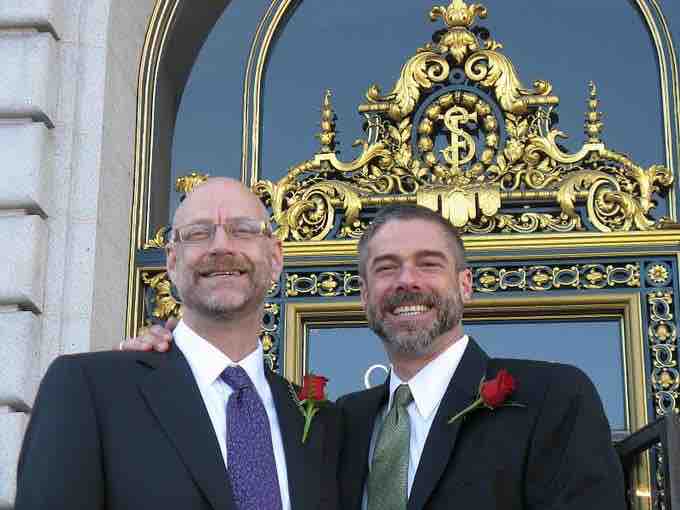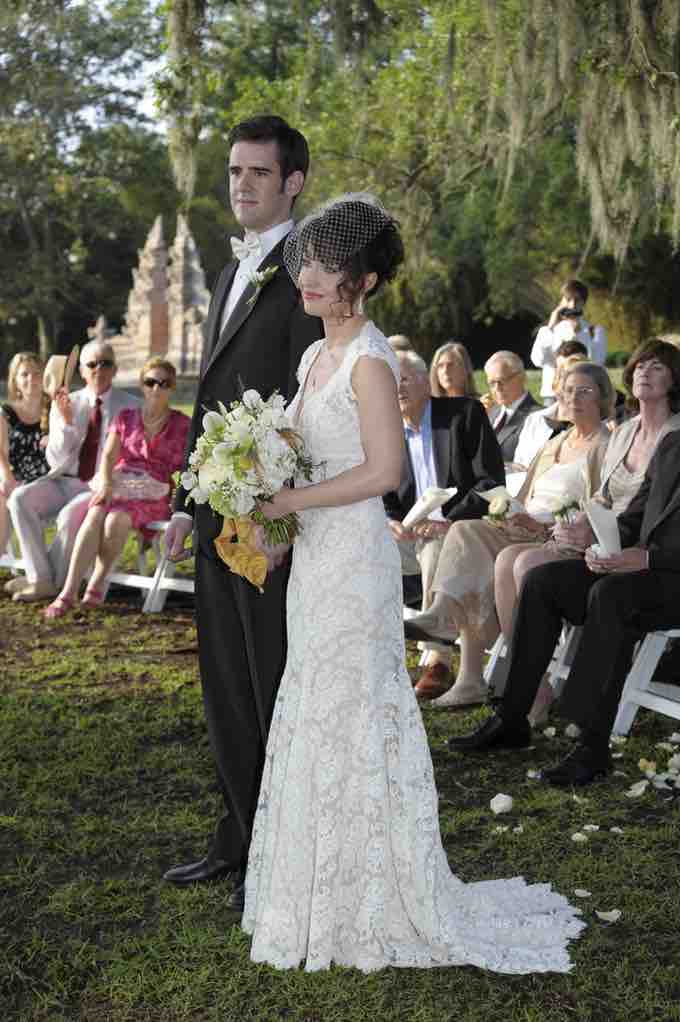Marriage is a governmentally, socially, or religiously recognized interpersonal relationship, usually intimate and sexual, that is often created as a form of contract. The most frequently occurring form of marriage is between a woman and a man, where the feminine term wife and the masculine husband are generally used to describe the parties to the contract. Some countries and American states recognize same-sex marriage, but gaining recognition for these unions is a legal battle occurring around the world .

Same-Sex Marriage
In some states and countries, homosexual couples can get legally married.
The ceremony in which a marriage is enacted and announced to the community is called a wedding. The reasons people marry vary widely, but usually include publicly and formally declare their love, the formation of a single household unit, legitimizing sexual relations and procreation, social and economic stability, and the education and nurturing of children. A marriage can be declared by a wedding ceremony, which may be performed either by a religious officiator or through a similar government-sanctioned secular process. The act of marriage creates obligations between the individuals involved and, in some societies, between the parties' extended families. Marriages are perpetual agreements with legal consequences, terminated only by the death of one party or by formal dissolution processes, such as divorce and annulment.
Schwartz and Mare examined trends in marriage over time and found that the old maxim "opposites attract" is less accurate of marriage than the maxim "birds of a feather flock together. " Their research focused on one specific similarity in marital partners: education. They found that the correlation of educational levels of American married couples decreased in similarity slightly after World War II, but has since increased substantially. As of 2003, one's level of educational attainment was a significant predictor of the educational attainment of one's spouse. People without a high school diploma are unlikely to marry someone with more educational attainment and people with a college degree are likely to marry people with a similar level of educational attainment. Part of the reason why education is so influential in determining the level of education of one's spouse is because people tend to form groups based on levels of education. First, there are the groups formed in the process of becoming educated; many people meet their spouses at school. But jobs after one completes his or her education also tend to be grouped by level of education. As a result, people spend more time with individuals of a similar level of educational attainment. As most people tend to marry or partner with individuals with whom they spend a lot of time, it is not surprising that there is significant educational similarity between spouses.
One well-known attribute of marriage is that it tends to have health benefits. Happily married people tend to be healthier than unmarried people. However, unhappily married couples may not receive the same health benefits and may actually be less healthy than their single peers.

Wedding
In many countries, heterosexual weddings have the women dress in traditional white with a veil and the men in a tuxedo.